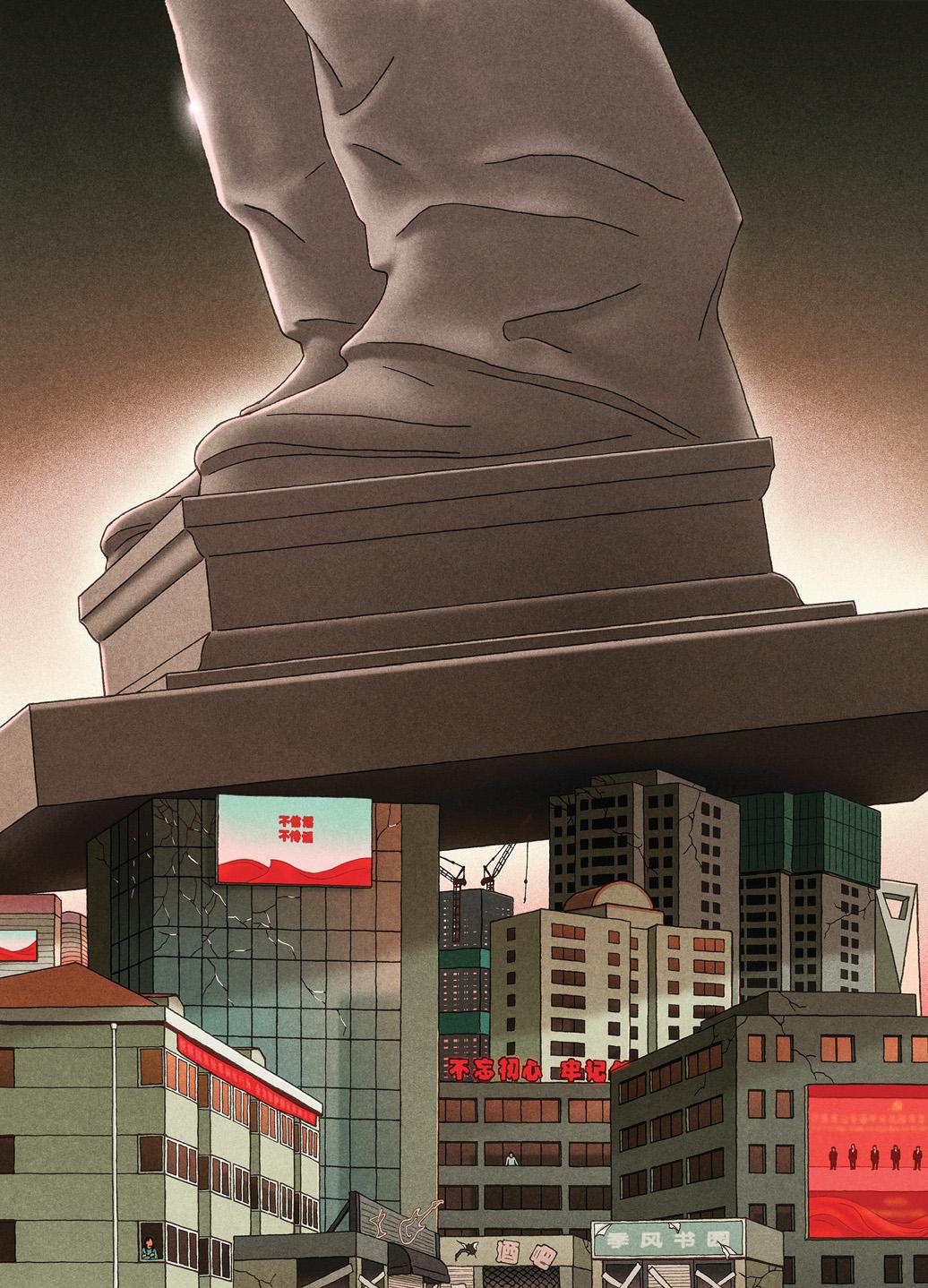
Twenty-five years ago, China’s writer of the moment was a man named Wang Xiaobo. Wang had endured the Cultural Revolution, but unlike most of his peers, who turned the experience into earnest tales of trauma, he was an ironist, in the vein of Kurt Vonnegut, with a piercing eye for the intrusion of politics into private life. In his novella “Golden Age,” two young lovers confess to the bourgeois crime of extramarital sex—“We committed epic friendship in the mountain, breathing wet steamy breath.” They are summoned to account for their failure of revolutionary propriety, but the local apparatchiks prove to be less interested in Marx than in the prurient details of their “epic friendship.”
Wang’s fiction and essays celebrated personal dignity over conformity and embraced foreign ideas—from Twain, Calvino, Russell—as a complement to the Chinese perspective. In “The Pleasure of Thinking,” the title essay in a collection newly released in English, he recalls his time on a commune where the only sanctioned reading was Mao’s Little Red Book. To him, that stricture implied an unbearable lie: “if the ultimate truth has already been discovered, then the only thing left for humanity to do would be to judge everything based on this truth.” Long after his death, of a heart attack, at the age of forty-four, Wang’s views still circulate among fans like a secret handshake. His widow, the sociologist Li Yinhe, once told me, “I know a lesbian couple who met for the first time when they went to pay their respects at his gravesite.” She added, “There are plenty of people with minds like this.”
This story is from the October 30, 2023 edition of The New Yorker.
Start your 7-day Magzter GOLD free trial to access thousands of curated premium stories, and 9,000+ magazines and newspapers.
Already a subscriber ? Sign In
This story is from the October 30, 2023 edition of The New Yorker.
Start your 7-day Magzter GOLD free trial to access thousands of curated premium stories, and 9,000+ magazines and newspapers.
Already a subscriber? Sign In

ART OF STONE
\"The Brutalist.\"

MOMMA MIA
Audra McDonald triumphs in \"Gypsy\" on Broadway.

INTERNATIONAL AFFAIRS
\"Black Doves,\" on Netflix.

NATURE STUDIES
Kyle Abraham's “Dear Lord, Make Me Beautiful.”

WHAT GOOD IS MORALITY?
Ask not just where it came from but what it does for us

THE SPOTIFY SYNDROME
What is the world's largest music-streaming platform really costing us?

THE LEPER - LEE CHANGDONG
. . . to survive, to hang on, waiting for the new world to dawn, what can you do but become a leper nobody in the world would deign to touch? - From \"Windy Evening,\" by Kim Seong-dong.

YOU WON'T GET FREE OF IT
Alice Munro's partner sexually abused her daughter. The harm ran through the work and the family.

TALK SENSE
How much sway does our language have over our thinking?

TO THE DETECTIVE INVESTIGATING MY MURDER
Dear Detective, I'm not dead, but a lot of people can't stand me. What I mean is that breathing is not an activity they want me to keep doing. What I mean is, they want to knock me off. My days are numbered.